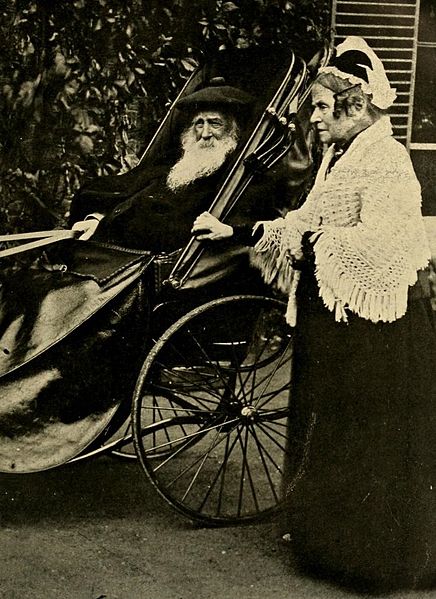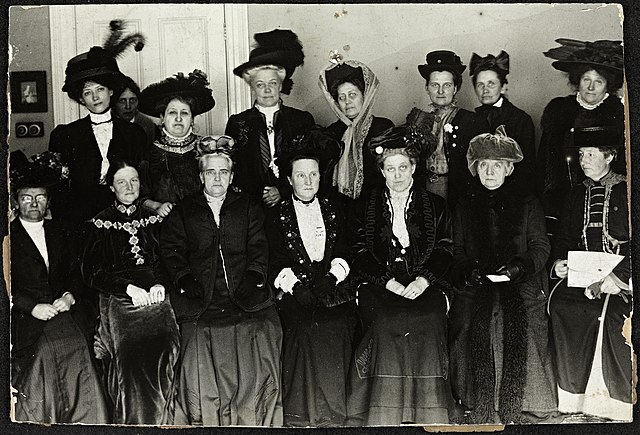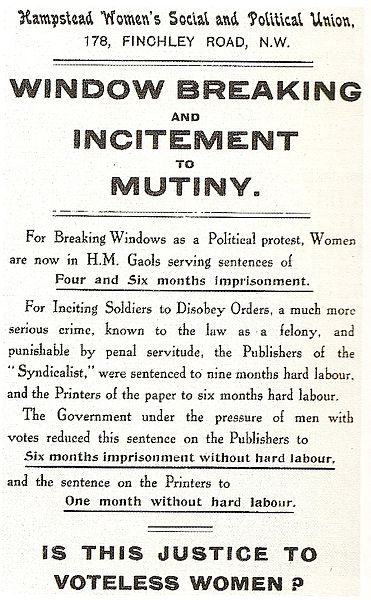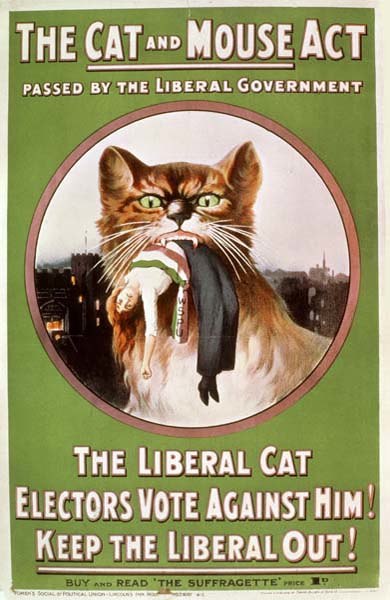Dame Millicent Garrett Fawcett was an English political activist and writer. She campaigned for women's suffrage by legal change and in 1897–1919 led Britain's largest women's rights association, the National Union of Women's Suffrage Societies (NUWSS), explaining, "I cannot say I became a suffragist. I always was one, from the time I was old enough to think at all about the principles of Representative Government." She tried to broaden women's chances of higher education, as a governor of Bedford College, London and co-founding Newnham College, Cambridge in 1875. In 2018, a century after the Representation of the People Act, she was the first woman honoured by a statue in Parliament Square.
Millicent Fawcett, c. 1873
Fawcett's parents, Newson and Louisa Garrett, in their old age
Millicent and Henry Fawcett
Suffrage Alliance Congress with Fawcett presiding, London 1909. Top row from left: Thora Daugaard (Denmark), Louise Qvam (Norway), Aletta Jacobs (Netherlands), Annie Furuhjelm (Finland), Zinaida Mirowitch (Zinaida Ivanova) (Russia), Käthe Schirmacher (Germany), Klara Honneger (Switzerland), unidentified. Bottom left: Unidentified, Anna Bugge (Sweden), Anna Howard Shaw (USA), Millicent Fawcett (Presiding, England), Carrie Chapman Catt (USA), F. M. Qvam (Norway),
Women's suffrage in the United Kingdom
A movement to fight for women's right to vote in the United Kingdom finally succeeded through acts of Parliament in 1918 and 1928. It became a national movement in the Victorian era. Women were not explicitly banned from voting in Great Britain until the Reform Act 1832 and the Municipal Corporations Act 1835. In 1872 the fight for women's suffrage became a national movement with the formation of the National Society for Women's Suffrage and later the more influential National Union of Women's Suffrage Societies (NUWSS). As well as in England, women's suffrage movements in Wales, Scotland and other parts of the United Kingdom gained momentum. The movements shifted sentiments in favour of woman suffrage by 1906. It was at this point that the militant campaign began with the formation of the Women's Social and Political Union (WSPU).
WSPU poster by Hilda Dallas, 1909.
A handbill complaining about sexual discrimination during the movement.
WSPU poster 1914
WSPU founders Annie Kenney and Christabel Pankhurst








